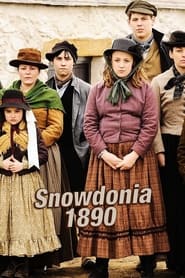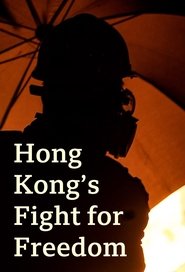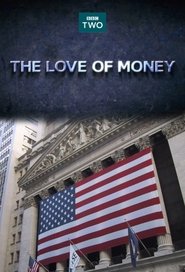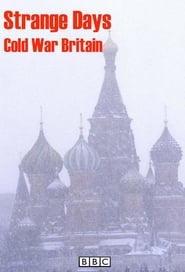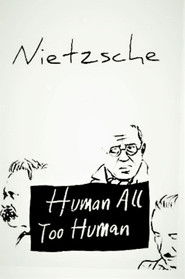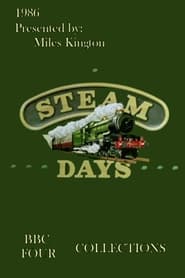Bbc Two TV Series - Page 86
-
200 Years of The Railways
0000
BBC Daytime commissions two-part series: 200 Years of The Railways which will air on BBC Two later this year. September 2025 marks 200 years since the first steam-hauled passenger train ran on a public railway, from Stockton to Darlington, in 1825.5 -
Mary Queen of Charity Shops
2009
Mary Portas attempts to transform the humble charity shop from the poor relation on the high street into a real contender. -
The Journey
1985
The Journey
1985
A series of ten programmes featuring playwright Peter Terson and reporter Dennis Skillicorn as they travel by gypsy wagon along the old pilgrims' route from Winchester to Canterbury. -
Storm Troupers: The Fight to Forecast the Weather
2016
Alok Jha charts the history of weather forecasting from its origins in the early 19th century. -
The Life and Times of David Lloyd George
1981
star 6.6Biographical drama series about the poor Welsh boy who became prime minister. David Lloyd George's career as a lawyer takes a fateful turn when he marries the daughter of a wealthy landowner and becomes a Liberal Party parliamentary candidate. -
The Big Life Fix
2016
star 7The UK's leading inventors create ingenious new solutions to every-day problems and build life-changing solutions for people in desperate need. -
Snowdonia 1890
2011
Snowdonia 1890
2011
Two families experience life on the hillsides of 19th-century Snowdonia. The Braddock and Jones families say goodbye to the 21st century and take their first steps into 1890. -
Meet the Ancestors
1998
star 7Meet the Ancestors aka Ancestors was a BBC Television documentary series that documented the archaeological excavation and scientific reconstruction of human remains. The series was introduced by archaeologist Julian Richards and often included facial reconstructions by Caroline Wilkinson. -
Hong Kong’s Fight for Freedom
2022
star 7As a bill allowing extradition to China sparks anger in Hong Kong, four young protesters take drastic action when they realise how far the authorities will go to silence them. -
The Love Of Money
2009
The Love Of Money
2009
On September 15, 2008, the firm filed for Chapter 11 bankruptcy protection following the massive exodus of most of its clients, drastic losses in its stock, and devaluation of its assets by credit rating agencies. The filing marked the largest bankruptcy in U.S. history. The following day, the British bank Barclays announced its agreement to purchase, subject to regulatory approval, Lehman’s North American investment-banking and trading divisions along with its New York headquarters building. On September 20, 2008, a revised version of that agreement was approved by Judge James Peck. -
Strange Days: Cold War Britain
2013
star 9BBC Two history series on Britain and the Cold War, looking at the period from the end of the 1950s to the mid-1970s. -
Working Lunch
1994
Working Lunch
1994
Working Lunch was a television programme broadcast on BBC Two which covered business, personal finance and consumer news between 1994 and 2010. The programme was first aired on 19 September 1994. It had a quirky, relaxed style, especially when compared to other BBC business shows such as World Business Report. In April 2010, the BBC announced that the programme was being cancelled at the end of July 2010. GMT with George Alagiah took its place in the schedule at 12:30 on BBC Two. -
Million Dollar Traders
2009
Eight ordinary people are given a million dollars and a fortnight of intensive training to run their own hedge fund. Hedge fund manager Lex van Dam wants to see if they can beat the professionals. -
Paris
2007
Paris
2007
Documentary series that charts the history of France's capital and its emergence as the world's most stylish and romantic city. -
Human, All Too Human
1999
Human, All Too Human
1999
Human, All Too Human is a three-part 1999 documentary television series co-produced by the BBC and RM Arts. It follows the lives of three prominent European philosophers: Friedrich Nietzsche, Martin Heidegger and Jean-Paul Sartre. The theme revolves heavily around the school of philosophical thought known as Existentialism, although the term had not been coined at the time of Nietzsche's writing and Heidegger declaimed the label. The documentary is named after the 1878 book written by Nietzsche, titled Human, All Too Human: A Book for Free Spirits. -
Did You See...?
0000
star 6Did You See...? was a long-running British television documentary series which began on the BBC in 1980. The programme took a look back at the week's television with a discussion between the presenter and three guests. In the first run there was also an item on related issues. The presenters of Did You See...? were the journalist and broadcaster Sir Ludovic Kennedy, who fronted the programme from 1980 to 1988, and from 1991 to 1993 Jeremy Paxman. Sarah Dunant hosted the show while Kennedy was absent due to ill health. The format was to review the week's TV highlights, followed by an in depth review and critique of three selected shows with a panel of three notable public figures. The last segment of the show was a commissioned review of an aspect of TV by an independent reporter. Notable editions of Did You See...? include a 1986 edition which featured a look at the history of Blue Peter in which former presenter Peter Purves recalled that on the death of Blue Peter pet parrot Joey, the show's editor Biddy Baxter -
Steam Days
1986
Steam Days
1986
Steam Days is a 1986 BBC 2 television documentary series written and presented by Miles Kington. Each episode is themed around the history of British steam locomotives and railways, particularly highlighting preserved locomotives operating at the time of its filming. The series consists of six half hour episodes. It aired on Public Television stations in the United States under the title Great Steam Trains. -
The 80s - Music’s Greatest Decade?
2021
star 9Music writer Dylan Jones puts the case that the 1980s were the most radical, innovative and creative decade in the history of pop.


